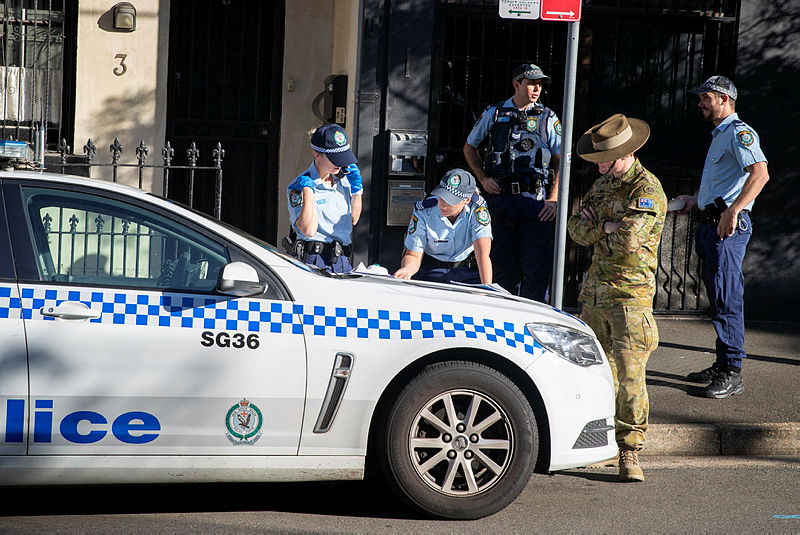
The beat
Australian police enforce coronavirus restrictions
Human rights advocates are worried about new measures to prevent the spread of Covid-19 in Australia. The federal government announced new restrictions, but states have applied the physical distancing measures differently. Police in Western Australia will deploy drones to monitor public spaces, something advocates say must be wound back in the future. The approach used by some NSW police in public parks was described by a senior officer as confronting. Officers can issue fines to people who leave home without a ‘reasonable excuse’ like buying food, exercising or travelling to and from work or school.
Chinese police clash with civilians and each other
Police in China have clashed with each other and with civilians on the border of virus-wracked Hubei Province. The confrontation occurred on a bridge over the Yangtze River as people tried to leave Hubei after some travel restrictions were relaxed. Police from the nearby city of Jiujiang set up barriers to stop them. The incident may be a foretaste of problems China and other countries will face as they seek to return to normality after months of lockdowns.
CT scan
Christchurch terrorist pleads guilty
Australian Brenton Tarrant has changed his plea to guilty of 51 murders, 40 attempted murders and carrying out an act of terrorism over last year’s Christchurch massacre. Because of the Covid-19 lockdown, the hearing took place remotely. Tarrant was driven by white supremacist ideology and live-streamed the attack on Facebook. The incident prompted New Zealand’s government to implement stricter gun laws, and Facebook to tighten its rules for live videos.
Counterterrorism and human rights during a pandemic
UN special rapporteur Fionnuala Ní Aoláin has argued that respect for human rights and the rule of law is often neglected in global counterterrorism efforts, and that the Covid-19 pandemic will pose extra challenges to these fundamental pillars. Ní Aoláin said the international community will need to display stronger political will and should advocate more strongly for the protection of human rights. Her comments come ahead of the 7th biennial review of the UN Global Counter-Terrorism Strategy.
Checkpoint
Thousands of Australians still stranded overseas
Thousands of Australian citizens and permanent residents remain stranded overseas as countries shut their borders and airlines cancel flights. A tour company was able to organise a chartered flight from Peru to Sydney earlier this week with Australian government support, allowing 292 Australians to travel home. However, many Australians are still stranded in South America and in other locked-down countries and are urging the government to organise more repatriation flights. Foreign Minister Marise Payne told the ABC that the government is working with Qantas to provide additional flights.
Indians try to get home amid lockdown
India has imposed a 21-day nationwide lockdown to contain the coronavirus. The speed of introduction of the measures—which include shutting down external borders, severely limiting and monitoring internal travel and shutting down transportation—has left India’s huge migrant labour population stranded at state borders, unable to cross and running out of money and food after losing their jobs. Many are walking long distances back to their villages, and some are turning to smugglers in an attempt to get home.
First responder
Military medical technology could help fight Covid-19
The military technology developed for dealing with large numbers of battle casualties could be used to help fight the Covid-19 pandemic. For example, telemedicine technologies could enable specialised doctors to provide medical advice without the need for patients to come into physical contact with them. AI-based or remotely controlled ventilation technologies developed by the US Department of Defense could provide life-saving emergency care during a shortage of medical workers.
Pacific unprepared for pandemic
The Pacific is one of the regions least prepared to handle a Covid-19 outbreak, and it’s feared there will be a repeat of the 1918 Spanish flu pandemic, during which some islands lost up to 20% of their populations. Relatively small numbers of cases have been detected so far, with 120 cases confirmed in the past week. Australia has funded Covid-19 testing kits for countries including Solomon Islands and Papua New Guinea. China has also offered tests to Solomon Islands and is expected to ramp up its efforts elsewhere in the region.

